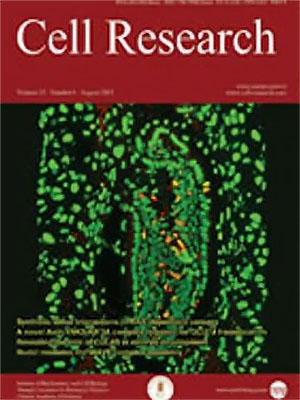Volume 12 Issue 2, June 2002: 151-156
ORIGINAL ARTICLES
The intracellular mechanism of alpha-fetoprotein promoting the proliferation of NIH 3T3 cells
Meng Sen LI1, Ping Feng LI1, Fei Yi YANG1, Shi Peng HE2, Guo Guang DU1, Gang LI1,*
1Department of Biochemistry and Molecular Biology,
2Department of Biophysics, Health Science Center, Peking University, Beijing 100083, China
Correspondence:
AIM The
existence and properties of alpha-fetoprotein (AFP) receptor on the surface of
NIH 3T3 cells and the effects of AFP on cellular signal transduction pathway
were investigated. METHODS The effect of AFP on the proliferation of NIH 3T3
cells was measured by incorporation of
3H-TdR. Receptor-binding assay
of
125I-AFP was performed to detect the properties of AFP receptor in
NIH 3T3 cells. The influences of AFP on the [cAMP]i and the activities of
protein kinase A (PKA) were determined. Western blot was used to detect the
change of K-ras P21 protein expression. RESULTS The proliferation of NIH 3T3
cells treated with 0-80 mg/L of AFP was significantly enhanced. The Scatchard
analysis indicated that there were two classes of binding sites with K
D of 2.722×10
-9M (Bmax=12810 sites per cell) and 8.931× 10
-8M (Bmax=119700 sites per cell) respectively. In the presence of AFP (20 mg/L), the
content of cAMP and activities of PKA were significantly elevated . The level of
K-ras P21 protein was upregulated by AFP at the concentration of 20 mg/L. The
monoclonal antibody against AFP could reverse the effects of AFP on the cAMP
content, PKA activity and the expression of K-ras p21 gene. CONCLUSION The
effect of AFP on the cell proliferation was achieved by binding its receptor to
trigger the signal transduction pathway of cAMP-PKA and alter the expression of
K-ras p21 gene.
FULL TEXT | PDF
Browse 2557


